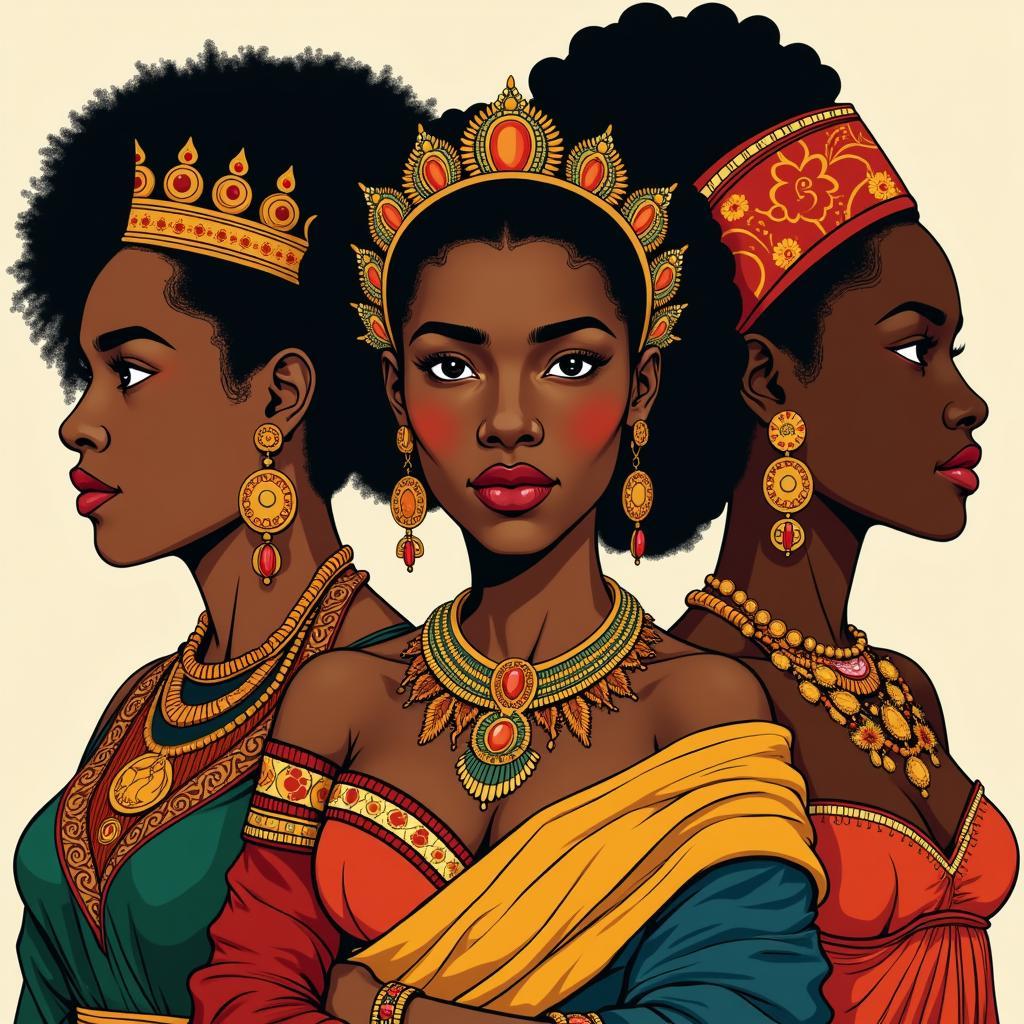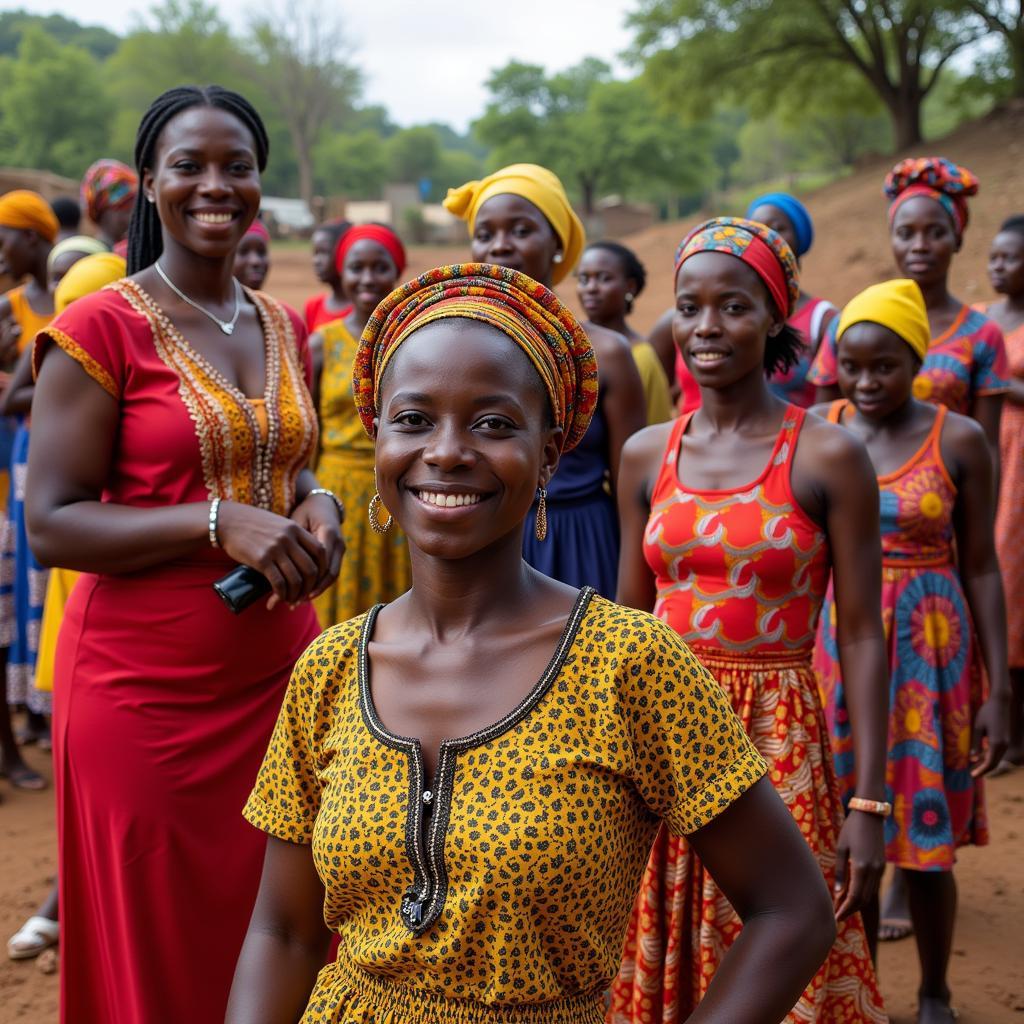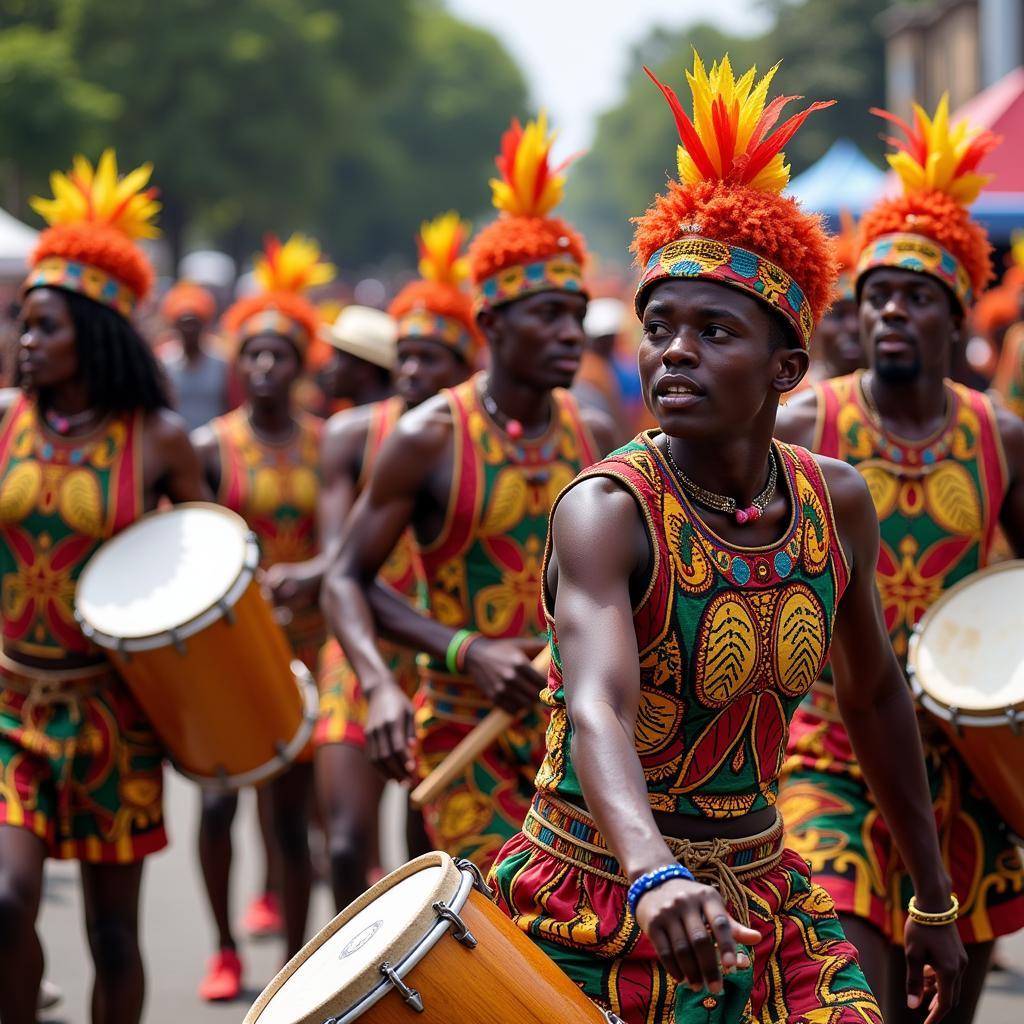The African Queen: Exploring the Many Facets of a Powerful Symbol
The term “African Queen” evokes a myriad of images and associations, from the fierce female monarchs of ancient empires to the strong, resilient women shaping the continent today. This exploration delves into the historical, cultural, and contemporary significance of this potent symbol, uncovering its diverse meanings across different contexts.
Reigning Supreme: Historical African Queens
 Historical Depiction of African Queens
Historical Depiction of African Queens
Africa boasts a rich history of powerful female rulers who commanded armies, forged alliances, and left an indelible mark on their kingdoms. These queens defied gender norms and demonstrated exceptional leadership in a male-dominated world. Figures like Queen Nzinga of Ndongo and Matamba, who fiercely resisted Portuguese colonialism in the 17th century, and the enigmatic Cleopatra VII of ancient Egypt, known for her political acumen and strategic alliances, stand as testaments to the impactful reigns of African queens. These women are not just figures of the past; their legacies continue to inspire generations and challenge historical narratives.
Beyond the Throne: “African Queen” in Popular Culture
The image of the “African Queen” has also permeated popular culture, often with romanticized or stereotypical portrayals. The 1951 film “African Queen” starring Humphrey Bogart and Katharine Hepburn, while set in colonial East Africa, presents a specific narrative that doesn’t fully encapsulate the diversity of African experiences.
However, there’s a growing movement to reclaim and redefine this image. Contemporary artists, musicians, and writers are exploring the complexities of African womanhood in their works, offering nuanced and authentic representations that challenge limiting stereotypes. This includes celebrating the everyday “queens” who navigate life’s challenges with strength, grace, and resilience.
A Name Fit for Royalty: African Girl Names Meaning Queen
The reverence for strong female figures is deeply embedded in African cultures, reflected in the tradition of bestowing names that carry the meaning “queen” or signify regal qualities. From the widely recognized “Amina” to the melodic “Makeda” and the powerful “Zuri,” these names embody the aspirations and values associated with leadership, wisdom, and beauty. Naming a child with such a title is not merely symbolic; it’s a way to impart those qualities and inspire them to embrace their inner strength.
The Matriarchal Influence: Celebrating Female Leadership
 African Women as Community Leaders
African Women as Community Leaders
While the historical record primarily focuses on queens in positions of political power, it’s crucial to acknowledge the broader significance of female leadership within African societies. Across the continent, women have traditionally played vital roles in their communities, from managing households and raising children to leading social initiatives and preserving cultural heritage. This matriarchal influence is deeply woven into the social fabric, contributing to the resilience and strength of African communities.
The “African Queen” in the Age of Empowerment
Today, the concept of the “African Queen” is being redefined in exciting ways. Across various fields, African women are breaking barriers and shattering glass ceilings. From groundbreaking scientists and entrepreneurs to influential artists and activists, they are claiming their rightful place on the global stage and inspiring future generations. This new wave of “African Queens” embodies the spirit of self-determination, innovation, and excellence, paving the way for a more equitable and prosperous future.
Conclusion
The “African Queen” is far more than a historical figure or a pop culture trope; it’s a powerful symbol of strength, resilience, and leadership that continues to resonate deeply. As we move forward, it’s essential to engage with this symbol in all its complexities, celebrating the achievements of African women while acknowledging the ongoing struggles for gender equality and social justice. The journey to fully realizing the potential of every “African Queen” is ongoing, and it demands our continued attention, respect, and support.


